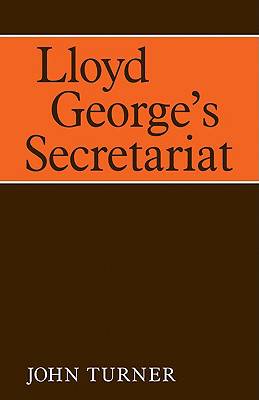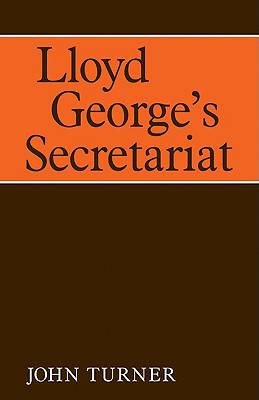
- Afhalen na 1 uur in een winkel met voorraad
- Gratis thuislevering in België vanaf € 30
- Ruim aanbod met 7 miljoen producten
- Afhalen na 1 uur in een winkel met voorraad
- Gratis thuislevering in België vanaf € 30
- Ruim aanbod met 7 miljoen producten
Zoeken
Omschrijving
When Lloyd George became Prime Minister during the First World War he appointed a private secretariat to help him run the complex machinery of wartime government. This book, drawing extensively on private and public archives, describes the work of that Secretariat during its two years of existence and discusses its contribution to policy-making and to the development of the Prime Minister's office. The 'Garden Suburb', so named from its temporary offices in the garden of 10 Downing Street, has won a poor reputation. Contemporaries described it as a nest of intrigue and imperialist, anti-democratic sentiment which helped to turn Lloyd George from a great Radical into a cynical dictator; and historians have tended to accept their word. This examination reveals a different picture. On the one hand, wartime government was imperfectly co-ordinated, and members of the Secretariat performed a genuine administrative task in helping Lloyd George to supervise it and save it from breakdown, although their small number and limited resources allowed them to cover only a few politically sensitive questions. On the other hand, the Garden Suburb was more eclectic in its ideological and political affiliations than has been allowed. Home Rule, collective security, temperance, state supervision of industry, Christian Science and the revival of agriculture, as well as imperial unity and opposition to socialism, each contributed through the Secretariat to the climate of ideas in which policy was made.
Specificaties
Betrokkenen
- Auteur(s):
- Uitgeverij:
Inhoud
- Aantal bladzijden:
- 268
- Taal:
- Engels
- Reeks:
Eigenschappen
- Productcode (EAN):
- 9780521093163
- Verschijningsdatum:
- 8/01/2009
- Uitvoering:
- Paperback
- Formaat:
- Trade paperback (VS)
- Afmetingen:
- 140 mm x 216 mm
- Gewicht:
- 344 g

Alleen bij Standaard Boekhandel
+ 129 punten op je klantenkaart van Standaard Boekhandel
Beoordelingen
We publiceren alleen reviews die voldoen aan de voorwaarden voor reviews. Bekijk onze voorwaarden voor reviews.







